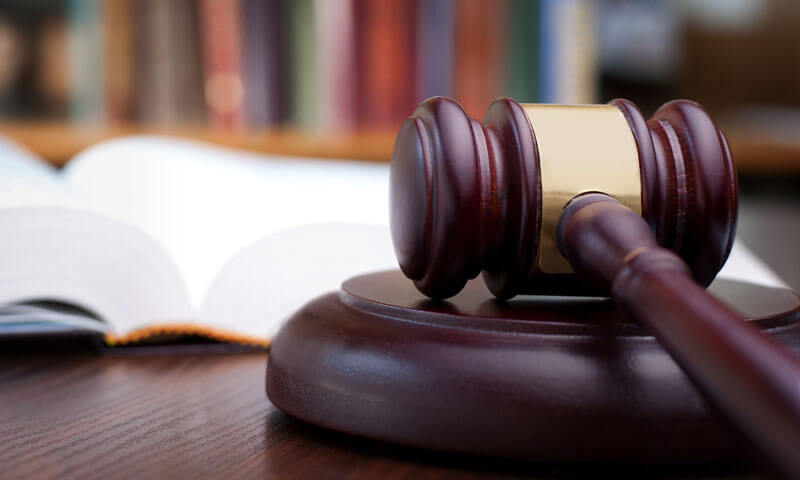
- Legal research;
- Conducting discovery;
- Taking and defending depositions;
- Preparation of witnesses;
- Persuasive writing skills;
- Motion practice;
- Trial experience; and
- Appellate experience.
A more junior litigation attorney’s resume will usually reflect skills primarily in legal research or discovery matters, particularly in document review, which is a particular subset of discovery. As lawyers advance in their careers, they will gain responsibility for more sophisticated writing projects and more complex litigation tasks.
For example, as an attorney develops, he or she will likely have skill sets that reflect drafting summary judgment motions and other significant motion work before the court. Likewise, taking and defending depositions and appearing in court at hearings mark a more accomplished litigator.
Finally, a litigation attorney will graduate to trial experience, sometimes first or second chairs, which may include taking or cross-examining witnesses, picking a jury, and opening and closing arguments to the court.Though there are firms who do not handle appeals at all (and some firms that only handle appellate work), often a litigation attorney at a large firm may have had the opportunity to draft or argue an appeal before appellate courts or higher courts. Obviously, the pinnacle of this work is appearance before the United States Supreme Court.
In addition to escalating litigation skills, firms prize attorneys with clerkship experience. Law school graduates thinking of pursuing careers in litigation may apply to clerk for federal or state judges. A federal district court or appellate court clerkship is considered more prestigious than a state court clerkship. Moreover, a federal court of appeals clerkship is considered more prestigious than a district court clerkship. Depending on the firm, clerkship experience may be more valuable, depending on the judge for whom a lawyer clerked or the district in which he or she clerked.
Almost any area of law can generate litigation, and as such, one could find a call for litigators in a large range of disciplines. Nonetheless, it may help to consider some major subsets of specific substantive areas when trying to place a litigation candidate, such as:
- General commercial litigation;
- White collar criminal defense;
- Insurance;
- Products liability.
GENERAL COMMERCIAL LITIGATION. The most significant category of litigation attorneys is the commercial litigator. Generally speaking, commercial litigation is civil litigation, the center of which is a dispute over a business or financial matter.The dispute may be a breach of contract, allegations of business fraud, or other pecuniary disputes. Commercial litigation will generally involve a corporate entity (corporation, partnership, limited liability company) as at least one of the parties, if not both.
Whether a law firm’s litigation practice is driven by the firm’s corporate clients or principally litigation clients, certain firms may have specialties within general commercial litigation. Depending on the client a firm represents, the litigation practice will be a reflection of the types of lawsuits those clients are most likely to encounter. For example, the firm that represents financial institutions may develop a specialty in lender liability matters. Some commercial litigation specialty areas may include securities litigation, financial services litigation, RICO disputes, or antitrust litigation.This litigation may take place either in state or federal court, depending on the underlying body of law. Some types of cases may only be heard in federal court. Moreover, large scale “bet the business” litigation will more likely be heard by a federal judge because of the amount in controversy.
While larger firms are more likely to have a broad general commercial practice, boutique law firms tend to specialize in one or related areas of litigation. Moreover, these smaller litigation departments are generally representing the same client or type of client each time. For example, a firm may specialize in representing stockholders in class-action suits against companies or in defending manufacturers in product liability cases. White Collar Criminal Defense. A law firm with a vibrant commercial litigation practice may also have a white collar crime practice representing defendants in criminal matters.White collar criminal defense relates to criminal matters that are closely tied to corporate or financial matters, which might include defending against allegations of securities fraud, tax evasion, or antitrust violations. Generally such practices are being developed or staffed by former federal prosecutors from the Department of Justice or other federal criminal enforcement body.
- Attorneys from other practice areas often face hurdles—see the challenges of transitioning from insurance defense to litigation for an in-depth look at one of the most common shifts.
INSURANCE. Many law firms have insurance companies as clients. Some litigation departments represent insurance companies almost exclusively. Still the type of litigation that a firm may handle on behalf of insurance clients may vary quite dramatically. One may see an attorney with insurance coverage experience. Generally, this means that the litigation attorney is advising the client with respect to whether a given policy will cover any particular incident. For litigation departments representing insurance companies, this generally means that the lawyers are defending the insurer against claims. Again, this may be a relatively minor personal injury matter or may concerns billions of dollars in assets. Generally, a coverage lawyer will have some facility with policy exclusion language and understand the issues with respect to primary, excess, and umbrella insurance policies.This litigation may be in state or in federal court, depending on the parties and amount in controversy. Insurance litigators may also have bad-faith litigation claims. Generally state court claims of bad-faith litigation usually arise when an insurance company refuses to cover a particular incident. Here, the insured may allege that the denial was in bad faith or violated another similar state law prohibiting unfair claims.
Finally, an insurance litigator may be an insurance defense lawyer. In this type of litigation, a law firm’s attorneys will take over the defense of an insured, while being retained by the insurance company client.This litigation can vary widely. One popular specialty within insurance defense is professional malpractice. In these cases, where the amount in controversy can be quite substantial, a lawyer may represent a hospital, law firm, or individual professional against claims of malfeasance or malpractice.
PRODUCTS LIABILITY. Products liability is a growing area of litigation practice. In essence, a products liability lawyer represents a company against allegations that something they manufacture for sale is defective in some way.These cases may be brought by individuals or oftentimes by a “class” of plaintiffs. Products liability cases may range from allegations over the failure of a mechanical device or allegations of dangerous effects of a drug. Notable products liability cases include asbestos litigation, breast implant litigation, or pharmaceutical litigation. Because there may be technical issues underlying the litigation, some firms may want their lawyers to have undergraduate or graduate degrees in the science or technical art that corresponds to the disputes. Additionally, products liability lawyers are generally more likely to be taking and defending depositions and going to trial than their commercial litigation counterparts, so strong courtroom litigation skills are particularly important.
Please see this article to find out if litigation is right for you: Why Most Attorneys Have No Business Being Litigators: Fifteen Reasons Why You Should Not Be a Litigator
About Harrison Barnes
No legal recruiter in the United States has placed more attorneys at top law firms across every practice area than Harrison Barnes. His unmatched expertise, industry connections, and proven placement strategies have made him the most influential legal career advisor for attorneys seeking success in Big Law, elite boutiques, mid-sized firms, small firms, firms in the largest and smallest markets, and in over 350 separate practice areas.
A Reach Unlike Any Other Legal Recruiter
Most legal recruiters focus only on placing attorneys in large markets or specific practice areas, but Harrison places attorneys at all levels, in all practice areas, and in all locations-from the most prestigious firms in New York, Los Angeles, and Washington, D.C., to small and mid-sized firms in rural markets. Every week, he successfully places attorneys not only in high-demand practice areas like corporate and litigation but also in niche and less commonly recruited areas such as:
- Immigration Law
- Workers Compensation
- Insurance
- Family Law
- Trust and Estate
- Municipal law
- And many more...
This breadth of placements is unheard of in the legal recruiting industry and is a testament to his extraordinary ability to connect attorneys with the right firms, regardless of market size or practice area.
Proven Success at All Levels
With over 25 years of experience, Harrison has successfully placed attorneys at over 1,000 law firms, including:
- Top Am Law 100 firms such including Sullivan and Cromwell, and almost every AmLaw 100 and AmLaw 200 law firm.
- Elite boutique firms with specialized practices
- Mid-sized firms looking to expand their practice areas
- Growing firms in small and rural markets
He has also placed hundreds of law firm partners and has worked on firm and practice area mergers, helping law firms strategically grow their teams.
Unmatched Commitment to Attorney Success - The Story of BCG Attorney Search
Harrison Barnes is not just the most effective legal recruiter in the country, he is also the founder of BCG Attorney Search, a recruiting powerhouse that has helped thousands of attorneys transform their careers. His vision for BCG goes beyond just job placement; it is built on a mission to provide attorneys with opportunities they would never have access to otherwise. Unlike traditional recruiting firms, BCG Attorney Search operates as a career partner, not just a placement service. The firm's unparalleled resources, including a team of over 150 employees, enable it to offer customized job searches, direct outreach to firms, and market intelligence that no other legal recruiting service provides. Attorneys working with Harrison and BCG gain access to hidden opportunities, real-time insights on firm hiring trends, and guidance from a team that truly understands the legal market. You can read more about how BCG Attorney Search revolutionizes legal recruiting here: The Story of BCG Attorney Search and What We Do for You.
The Most Trusted Career Advisor for Attorneys
Harrison's legal career insights are the most widely followed in the profession.
- His articles on BCG Search alone are read by over 150,000 attorneys per month, making his guidance the most sought-after in the legal field. Read his latest insights here.
- He has conducted hundreds of hours of career development webinars, available here: Harrison Barnes Webinar Replays.
- His placement success is unmatched-see examples here: Harrison Barnes' Attorney Placements.
- He has created numerous comprehensive career development courses, including BigLaw Breakthrough, designed to help attorneys land positions at elite law firms.
Submit Your Resume to Work with Harrison Barnes
If you are serious about advancing your legal career and want access to the most sought-after law firm opportunities, Harrison Barnes is the most powerful recruiter to have on your side.
Submit your resume today to start working with him: Submit Resume Here
With an unmatched track record of success, a vast team of over 150 dedicated employees, and a reach into every market and practice area, Harrison Barnes is the recruiter who makes career transformations happen and has the talent and resources behind him to make this happen.
A Relentless Commitment to Attorney Success
Unlike most recruiters who work with only a narrow subset of attorneys, Harrison Barnes works with lawyers at all stages of their careers, from junior associates to senior partners, in every practice area imaginable. His placements are not limited to only those with "elite" credentials-he has helped thousands of attorneys, including those who thought it was impossible to move firms, find their next great opportunity.
Harrison's work is backed by a team of over 150 professionals who work around the clock to uncover hidden job opportunities at law firms across the country. His team:
- Finds and creates job openings that aren't publicly listed, giving attorneys access to exclusive opportunities.
- Works closely with candidates to ensure their resumes and applications stand out.
- Provides ongoing guidance and career coaching to help attorneys navigate interviews, negotiations, and transitions successfully.
This level of dedicated support is unmatched in the legal recruiting industry.
A Legal Recruiter Who Changes Lives
Harrison believes that every attorney-no matter their background, law school, or previous experience-has the potential to find success in the right law firm environment. Many attorneys come to him feeling stuck in their careers, underpaid, or unsure of their next steps. Through his unique ability to identify the right opportunities, he helps attorneys transform their careers in ways they never thought possible.
He has worked with:
- Attorneys making below-market salaries who went on to double or triple their earnings at new firms.
- Senior attorneys who believed they were "too experienced" to make a move and found better roles with firms eager for their expertise.
- Attorneys in small or remote markets who assumed they had no options-only to be placed at strong firms they never knew existed.
- Partners looking for a better platform or more autonomy who successfully transitioned to firms where they could grow their practice.
For attorneys who think their options are limited, Harrison Barnes has proven time and time again that opportunities exist-often in places they never expected.
Submit Your Resume Today - Start Your Career Transformation
If you want to explore new career opportunities, Harrison Barnes and BCG Attorney Search are your best resources. Whether you are looking for a BigLaw position, a boutique firm, or a move to a better work environment, Harrison's expertise will help you take control of your future.
Submit Your Resume Here to get started with Harrison Barnes today.
Harrison's reach, experience, and proven results make him the best legal recruiter in the industry. Don't settle for an average recruiter-work with the one who has changed the careers of thousands of attorneys and can do the same for you.
About BCG Attorney Search
BCG Attorney Search matches attorneys and law firms with unparalleled expertise and drive, while achieving results. Known globally for its success in locating and placing attorneys in law firms of all sizes, BCG Attorney Search has placed thousands of attorneys in law firms in thousands of different law firms around the country. Unlike other legal placement firms, BCG Attorney Search brings massive resources of over 150 employees to its placement efforts locating positions and opportunities its competitors simply cannot. Every legal recruiter at BCG Attorney Search is a former successful attorney who attended a top law school, worked in top law firms and brought massive drive and commitment to their work. BCG Attorney Search legal recruiters take your legal career seriously and understand attorneys. For more information, please visit www.BCGSearch.com.
Harrison Barnes does a weekly free webinar with live Q&A for attorneys and law students each Wednesday at 10:00 am PST. You can attend anonymously and ask questions about your career, this article, or any other legal career-related topics. You can sign up for the weekly webinar here: Register on Zoom
Harrison also does a weekly free webinar with live Q&A for law firms, companies, and others who hire attorneys each Wednesday at 10:00 am PST. You can sign up for the weekly webinar here: Register on Zoom
You can browse a list of past webinars here: Webinar Replays
You can also listen to Harrison Barnes Podcasts here: Attorney Career Advice Podcasts
You can also read Harrison Barnes' articles and books here: Harrison's Perspectives
Harrison Barnes is the legal profession's mentor and may be the only person in your legal career who will tell you why you are not reaching your full potential and what you really need to do to grow as an attorney--regardless of how much it hurts. If you prefer truth to stagnation, growth to comfort, and actionable ideas instead of fluffy concepts, you and Harrison will get along just fine. If, however, you want to stay where you are, talk about your past successes, and feel comfortable, Harrison is not for you.
Truly great mentors are like parents, doctors, therapists, spiritual figures, and others because in order to help you they need to expose you to pain and expose your weaknesses. But suppose you act on the advice and pain created by a mentor. In that case, you will become better: a better attorney, better employees, a better boss, know where you are going, and appreciate where you have been--you will hopefully also become a happier and better person. As you learn from Harrison, he hopes he will become your mentor.
To read more career and life advice articles visit Harrison's personal blog.





